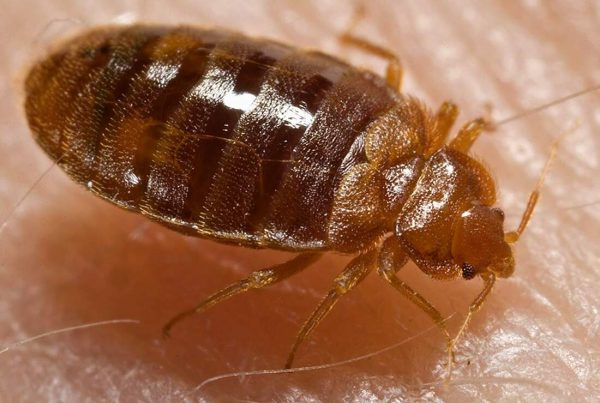
No one likes bed bugs. No one likes the red and itchy welts that they leave on your skin after they feed on your blood. No one likes the stress or the sleepless nights that they cause.
They’re gross, they’re irritating, and most of all, they don’t seem to get away. They breed by the hundreds; kill twenty, and 2000 will appear in their place for starters. They’re also deceptively clever, choosing to hide in narrow, hard-to-reach places, out-of-sight and out-of-mind. Lastly, they’re also incredibly hardy for a bunch of tiny pests. Common pesticides only have moderate success on them.
This is not to say that they are impervious to everything, though. Even bed bugs have certain things that they just can’t stand.
No doubt that they want NOTHING to do with any of the items on this list. Hopefully, you’ll find something that can help you get a leg up on these pesky little devils.
AROMATIC NATURAL SUBSTANCES
- Lavender oil: How does the old saying go? “One bug’s trash is another man’s treasure?” While most people find the scent of lavender oil to be soothing, its strong taste and aroma are repellent to bed bugs and destroys their eggs. Think about it as hitting two birds with one stone: You get to take care of a handful of pests while really livening up the place with a wonderful scent.
- Tea Tree Oil: While this substance is normally used as an acne rub and a way to fight bacteria, Tea Tree Oil is also an absolute poison for bed bugs. Not only is the scent repellent, but it also directly damages their exoskeletons. Feel free to spray this liberally on furniture and other surfaces you might find bed bugs in.
- Diatomaceous Earth: Made from fossilized aquatic organisms called “diatoms,” this is arguably one of the strongest natural insect repellents in the market. Exposure to this stuff will wipe any bed bug off of the face of the Earth. Be sure to get the pesticide variant, however. Food-grade diatomaceous can be dangerous to inhale.
COMMONLY FOUND HOUSEHOLD SUBSTANCES
Don’t have any fancy oils or dead organisms lying around? No problem at all! Several anti-bed bug substances can be found lying around in any pantry or supply cabinet.
- Lemon juice is more than the base of a sweet summer drink. It’s also absolutely hated by bed bugs the world over. You can dilute some with water and spray it on some bed bugs, dealing with those pests while also enjoying a light, citrusy aroma.
- A spray bottle with diluted peppered powder is a spicier alternative to its lemon juice counterpart. The greatest advantage of this alternative is that it’s dirt cheap if you don’t already have some lying around in the house (Which you might if you cook).
- Rubbing alcohol is a less-appetizing alternative that is no less effective. Contact with this substance will dry bed bugs out like raisins, and its strong scent deters them from further breathing. Just be careful not to apply it to a wood, as it will leave a light stain on the surface.
All these items are good immediate solutions for any bed bug encounter. They’ll repel (and sometimes outright kill) these pests in almost no time at all.
Don’t think they are a “one size fits all” bed bug solution, however. In the instance of a full bed bug infestation, killing a handful of them with lemon spray won’t solve the problem. Bed bugs reproduce freakishly fast and can hide inside all sorts of hard-to-reach corners of the house. Planning to spray them all is not only inefficient, but it’s also ineffective; you can only have so much lavender oil all at once, after all.
Rather than stocking up on a lifetime supply of rubbing alcohol, why not use that money to hire the services of a professional exterminator instead? Don’t let your house play host to unwanted guests. GTA Toronto Pest Control can cover all the little corners your spray bottle can’t. They offer incredible bed bug removal services that leave no stone unturned.











